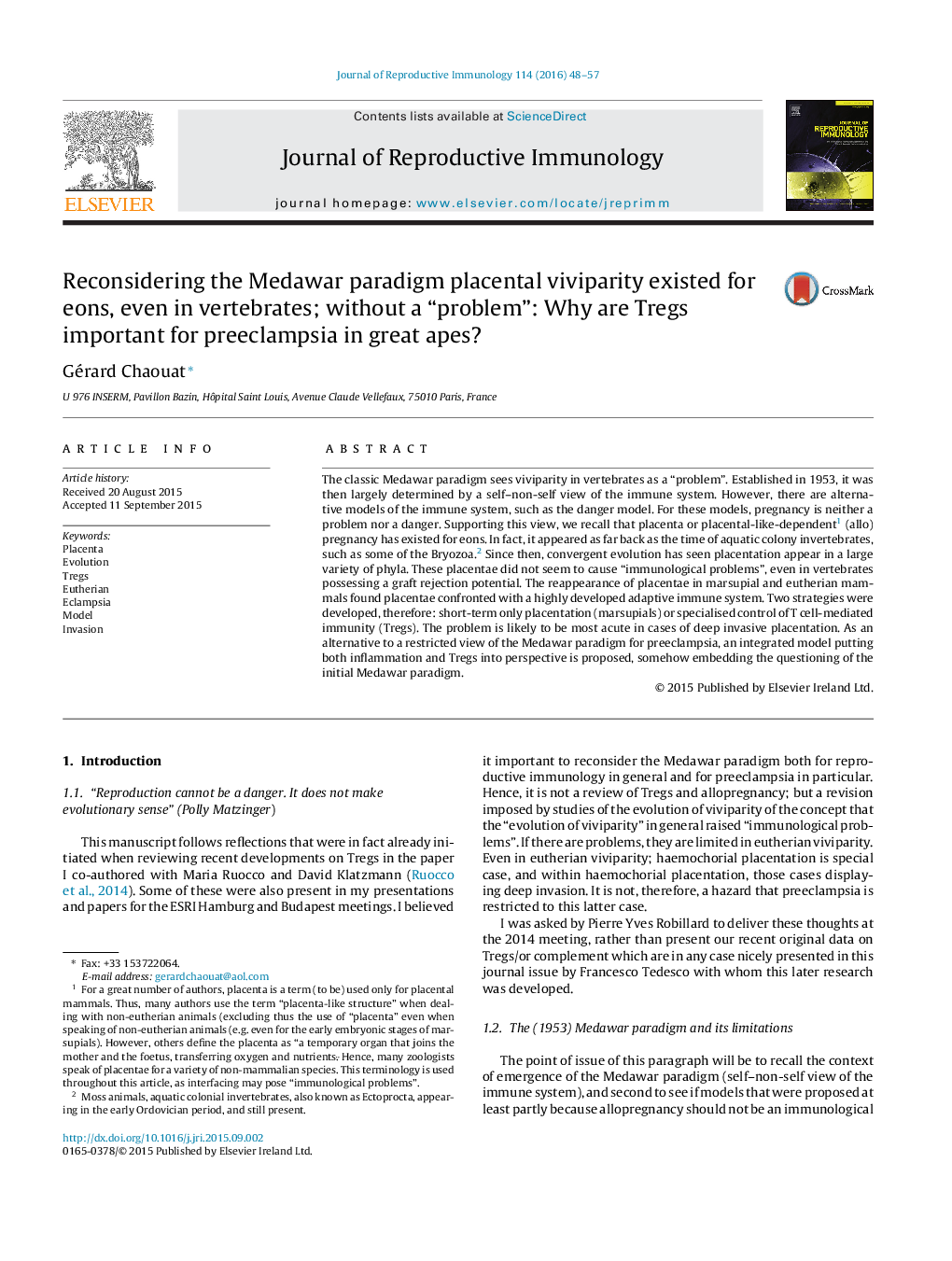| Article ID | Journal | Published Year | Pages | File Type |
|---|---|---|---|---|
| 6188475 | Journal of Reproductive Immunology | 2016 | 10 Pages |
â¢In opposition to Medawar, placentae exist in invertebrates and above all vertebrates that can reject grafts: see for example the shark “foetal allograft”: no problems.â¢Placentation exists but does not last long in marsupials: is it because of the threat of a T cell and T cell cytokine attack-also activating NK cells?â¢Inflammation is needed in implantation but post-implantation must be controlled by Tregs. However, some inflammatory components persist post-implantation in humans.â¢T cells can be downregulated by complement.â¢Thus, in human pregnancy continuous controlled inflammation (linked to deep invasion?) exists and alloantigen-specific Treg control may be “borderline” in a first pregnancy.â¢Model: in great apes, with deep invasion placenta, failure of Treg control or a complement activation (thus Treg downregulation) leads to continuous excess inflammation in PE, more abrupt even in cases of recurrent spontaneous abortion.
The classic Medawar paradigm sees viviparity in vertebrates as a “problem”. Established in 1953, it was then largely determined by a self-non-self view of the immune system. However, there are alternative models of the immune system, such as the danger model. For these models, pregnancy is neither a problem nor a danger. Supporting this view, we recall that placenta or placental-like-dependent1 (allo) pregnancy has existed for eons. In fact, it appeared as far back as the time of aquatic colony invertebrates, such as some of the Bryozoa.2 Since then, convergent evolution has seen placentation appear in a large variety of phyla. These placentae did not seem to cause “immunological problems”, even in vertebrates possessing a graft rejection potential. The reappearance of placentae in marsupial and eutherian mammals found placentae confronted with a highly developed adaptive immune system. Two strategies were developed, therefore: short-term only placentation (marsupials) or specialised control of T cell-mediated immunity (Tregs). The problem is likely to be most acute in cases of deep invasive placentation. As an alternative to a restricted view of the Medawar paradigm for preeclampsia, an integrated model putting both inflammation and Tregs into perspective is proposed, somehow embedding the questioning of the initial Medawar paradigm.
